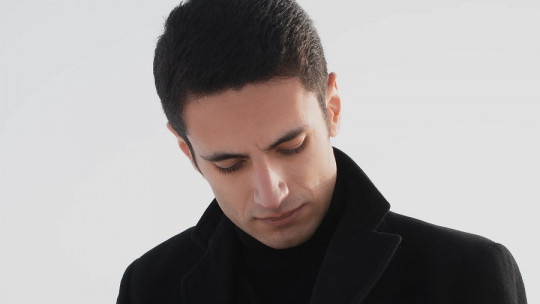
Throughout my professional life, both as a psychologist and in Talent management, I have not stopped encountering people who, with different profiles, personality characteristics and education, coincide in being affected by a feeling that causes them great discomfort, which reaches to be very limiting, to the point that it affects your decisions, relationships and experiences.
This discomfort is called “feeling of guilt.” Furthermore, on many occasions it comes through a tendency to be cruel to oneself.
Did you know that we are born free of guilt?
It is important to note that guilt is a learned feeling. It is something that we learn by imitation, and also by learning through comparisons, demands and failures. that we live. It begins to develop from childhood to become fully established in adulthood.
Guilt, like other feelings and emotions, is an adaptive psychological mechanism. Its function is to recognize our mistakes and act accordingly., through adaptation and repair behaviors to avoid damage. In this case, guilt helps us comply with the norms and ethical codes necessary for our society. Therefore, it prevents us from making mistakes that could have serious consequences.
The problem arises when guilt becomes maladaptive.
What is maladaptive guilt?
We can say that Guilt becomes maladaptive when it becomes a frequent and intense emotion, limiting our thinking. (becoming a recurring thought) and distorting our self-concept.
This guilt is born and enlarges in the face of the “moral” norms that we create with our children, partner, friends, work… In such a way that it can greatly affect all areas of our life, while at the same time joining the same, a feeling of frustration when seeing how things affect us that do not affect others, or at least, do not seem to.
Do you want to learn to manage guilt and free yourself from it?
In the feeling of guilt, it is key to be aware that the role is ours. Thoughts and value judgments are ideas, they are not absolute truths..
The degree of flexibility and tolerance towards the mistakes we make or could make, our ability to accept them and learn from them, our empathy towards ourselves and towards others, are factors that affect our interpretations and evaluations, and that can help us to free ourselves from that guilt in imbalance.
To do this, it is very important that you analyze yourself and decide if you want free yourself from constant guilt as a driving force in your life.
If you have reached this point, where guilt is the first feeling that comes to you every time you do not do something as you would like (or that you have labeled as “badly” done), here I provide you with a series of guidelines that will help you work on it. so that you can balance it, without the emotional exhaustion that it generates:
1. Make notes
Every time you feel guilty about something, write it down along with what motivates you. Writing is a therapeutic action that will help you become conscious of the way you think and speak to yourself.
2. Learn from your emotions
Observe well which events and/or aspects are the most painful and affect you.. You will realize which are the events that most cause that feeling of constant guilt (personal relationships, your children, your work, etc.).
3. Learn to adopt an even-handed point of view
Analyze if the judgment you make of yourself is balanced or if you are judging yourself excessively. To do this, an exercise that helps a lot is to imagine that what you are blaming yourself for has happened to a person you love very much. Would you judge her with the same harshness? What would you say?
4. Identify the origins of the problem
Analyze the following in depth: How have you come to blame yourself in this way? ¿Do you question some time? Understanding the reasons for our actions helps free us from unnecessary emotions and self-punishments..
Think about those things you failed at, or felt you did wrong throughout your life, and how they affected you to the point of becoming the person you are. It’s not about forgetting everything. But to be fair to yourself. Surely you could have done things better, but surely there are also facts and events for which you blame yourself excessively.
Understanding Maladaptive Guilt
Being fair and sensible in our value judgments helps us to be coherent and balanced people. It is not about evading responsibilities, but about taking responsibility to the exact extent, evaluating those aspects that are in our area of control.striving for what we can do, and forgiving ourselves when we don’t achieve everything the way we wanted.
Living “hooked” on this type of negative emotions only makes you lose the possibility of living your life enjoying each day with intensity. Have you ever wondered what you’re missing while living with nothing but guilt?
Maladaptive guilt is a direct attack on your self-esteem. Minimize your abilities and qualities, maximizing your weaknesses and generating negative automatic thoughts that only lead to your own self-abuse and the constant loss of being able to experience what you do with joy and tranquility.
The only reality is that not everything is your fault. And for this, Let’s start by changing the concept, change guilt for responsibility. Responsibility is a powerful word. Take responsibility for your life, your problems and your happiness. Don’t give that responsibility to others.
Also free yourself from the value judgments of others: what do you feel? Think about whether perhaps you are committing an injustice to yourself because of what you have learned during your childhood, because of the norms and/or opinions of others or because of the self-demands that you carry on your back.
Maladaptive guilt is often generated by those “backpacks” that we carry with biased ideas and perceptions. However, there are many psychological strategies that generate new habits that help us reconcile with ourselves, to live fully and freely for the full enjoyment of our lives. Dare to follow the indicated guidelines, and contact me or another psychotherapy professional if you want to continue delving deeper or working on it.








